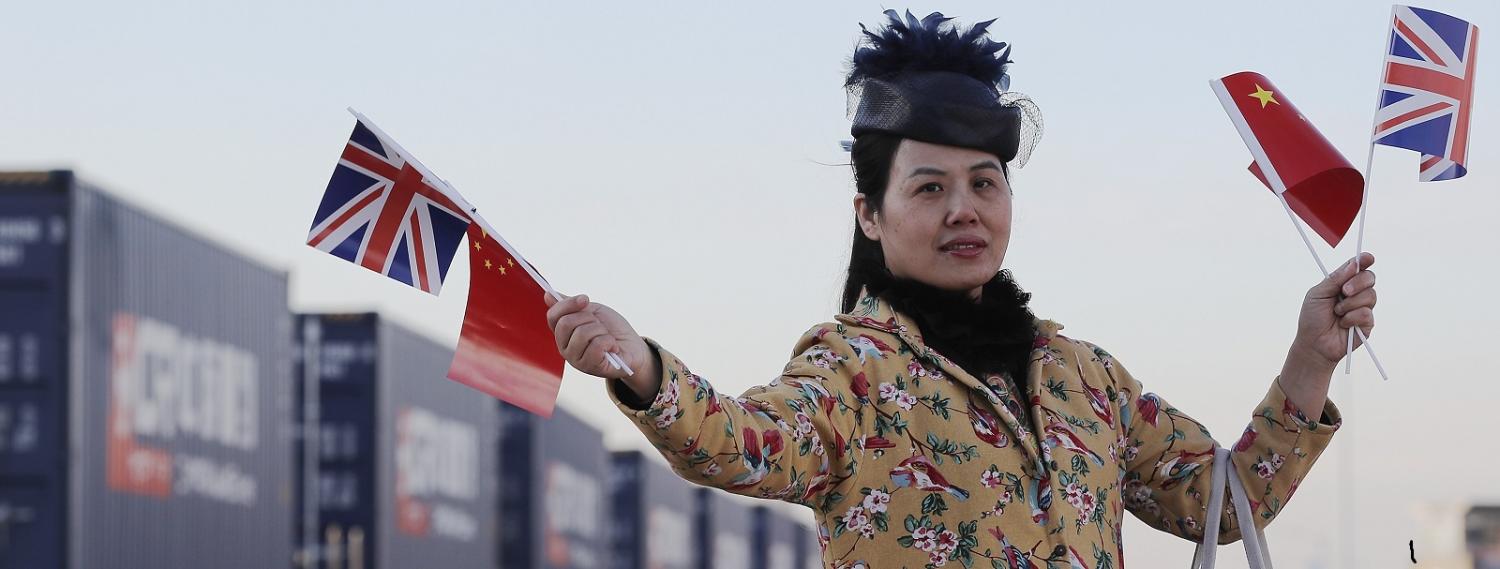British Prime Minister Theresa May continues to use the language of the 'golden age' in respect to the British relationship with China. But the gilding is wearing pretty thin these days, and the substance of the current golden era bears little resemblance to the policies of the previous UK administration.
True, a strong economic relationship with China remains a key objective of post Brexit UK foreign policy. China was one of the countries with which the Trade Secretary, Liam Fox, claimed the UK was already in informal discussion concerning future free trade agreements. Symbolically linking the UK in with the with great 'One Belt One Road' project, a freight train arrived directly from China in the UK on 18 January, bearing, as the populist Sun newspaper rather dismissively noted, a cargo of socks. It nonetheless made the journey in half the time it would have taken for the cargo to travel by sea, opening interesting new prospects, but future trains will depend at least in part on being able to find UK goods with which to fill it on the return journey. Significant new Chinese investments continue to be announced in the UK, and there is no reason why these should not continue.
But the uncritical political commitment to China has changed. May was not afraid to allow the Hinkley Point Power Station project to be questioned, causing some agitation to the Chinese at the time, and officials later claimed that greater safeguards had been inserted into the agreement when it belatedly got the go ahead. The follow up project, in which there was considerably more actual Chinese interest, of the proposed China built power station at Bradwell B has been kicked into the long grass for now. A Generic Design Assessment of the Chinese technology has begun and this process takes at least four years. Values may even have crept back into the mix. In a small but significant section of her speech in Philadelphia, during her recent visit to the United States, May noted that 'countries with little tradition of democracy, liberty and human rights – notably China and Russia – have grown more assertive in world affairs'. And she went on to add:
...other countries may grow stronger. Big, populous countries may grow richer. And as they do, they may start to embrace more fully our values of democracy and liberty. But even if they do not, our interests will remain. Our values will endure. And the need to project them and defend them will be as important as ever.
It remains to be seen to what extent these words may or may not translate into China policy, but this is not a line the previous Treasurer would have taken. As Britain seeks to further tighten control over its borders there may well be implications for Chinese students.
And then there is President Trump. May’s visit to the United States in late January as the first foreign leader to meet the new President signalled her desire to strengthen the transatlantic relationship, and she has invested considerable domestic political capital in it. It is now an open question as to what extent will Britain find itself caught up in US policy towards China, especially in the trade related dimensions of it. Nonetheless, as Britain looks to new friends in a post Brexit world, it is across the Atlantic rather than eastwards that its gaze naturally turns at the moment, even though on certain issues - such as climate change - China and the UK are now strangely more likely to see more eye to eye than are the UK and the US. As Britain becomes more and more focussed on Brexit, there will be less room for creative diplomacy elsewhere. Until the uncertainties around Brexit are resolved one way or another, China is likely to remain cautious about the extent of its involvement in investment in Britain.
Quite where Britain fits into China’s priorities is not that clear. Its usefulness as a voice for globalisation and liberalisation within the EU has obviously dissipated. But a British government eager to do business within China is likely to continue to incentivise other EU countries to do likewise, as in the case of the AIIB. China will show less tolerance of Britain’s right to comment over Hong Kong matters at a time when politics there is becoming more and more complex and the behaviour of elements of the Chinese security forces seems increasingly unconstrained. The symbolic significance of Britain as a former major colonial power in the region, and a leading player in the 150-year narrative of China’s humiliation, probably still plays a part. It can only increase the prestige of China’s present day leaders if Britain is seen to be coming cap in hand seeking new favours from China.
